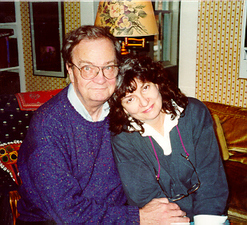Not everyone has the opportunity to attend poetry readings in their local area, but thankfully there are many available online. One source I was browsing and listening to today is the PoetryFoundation.org which has almost 3000 audio files.
I was just browsing and clicking and listening - the audio equivalent of doing that through an anthology.
I will admit to clicking on poems just because a title caught my attention - like
"On Wanting to Tell [ ] about a Girl Eating Fish Eyes" by Mary Szybist, which begins:
—how her loose curls float
above each silver fish as she leans in
to pluck its eyes—
or listening to "How to Love Bats" by Judith Beveridge:
open your mouth, out will fly names
like Pipistrelle, Desmodus, Tadarida. Then,
listen for a frequency
lower than the seep of water, higher
than an ice planet hibernating
beyond a glacier of Time.
As with browsing a poetry anthology or journal or an open reading, you will encounter poets you have never read before, which is always a good thing.
I also subscribe/listen to the Poetry Foundation's podcast in which the editors talk to poets published in Poetry magazine and critics to discuss in more detail the issue. Conversations about poems are also something you might get at a reading. For example, I listened to a discussion about Terrance Hayes’s poem “How to Draw a Perfect Circle” and then promptly sat down to write a how-to poem of my own.
Some people say clicking these links leads you into a rabbit hole of more and more clicks. That is sometimes true for me. After listening to the Haye's podcast, I did click deeper into the prose selections on the site and read an essay "Another Life - Terrance Hayes and the poetics of the un-thought" by Joshua Bennett Hayes’s latest collection, American Sonnets for my Past and Future Assassin. It is a collection from the 200 days between President Trump’s election and the early summer of 2017. He wrote 70 sonnets which come from that time but are more about what led up to Trump's election.
After that though, I needed to return to some poetry to cleanse my poetry palate - perhaps William Blake's "The Ecchoing Green." After too much reality, Blake sounds so happy that we might view him as naive. That would be a mistake.
...laugh away care,
Sitting under the oak,
Among the old folk,
They laugh at our play,
And soon they all say.
‘Such, such were the joys.
When we all girls & boys,
In our youth-time were seen,
On the Ecchoing Green...’
from Poets Online blog https://ift.tt/2w7dyAA













